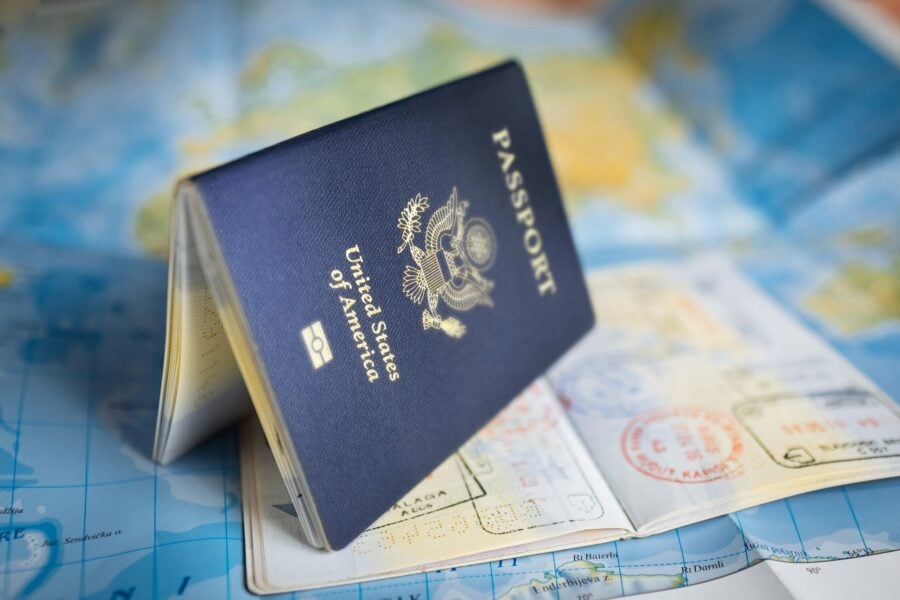Texas and Louisiana have emerged as the epicenter of U.S. immigration detention, together holding nearly one-third of all people in Immigration and Customs Enforcement (ICE) custody on any given day. According to a new analysis from Suzuki Law Offices, Texas alone houses more than 12,000 detainees daily — the largest number of any state — while Louisiana ranks second with more than 7,000 detainees despite its far smaller population.
These figures highlight not only the scale of detention in the two states but also the outsized role they play in shaping the national immigration enforcement landscape. What makes the data even more striking is that nearly half of all detainees nationwide have no criminal record, underscoring a growing debate over enforcement priorities, due process protections, and the role of state-level cooperation with federal authorities.
The Scale of Detention in Texas and Louisiana
Suzuki Law’s review of ICE population data paints a stark picture:
-
Texas – Over 12,000 people in custody daily, the largest total of any state.
-
Louisiana – More than 7,000 people in custody daily, despite ranking just 25th in U.S. population size.
-
Combined – Nearly 30% of the U.S. detainee population is housed in the two states.
Many detainees in these states are held in privately run facilities under federal contracts, where capacity drives occupancy. This combination of high-volume facilities, active cooperation between state and federal agencies, and a lack of “sanctuary” protections creates an environment where large-scale detention is the norm rather than the exception.
Why Texas and Louisiana Dominate Detentions
The analysis points to several structural and policy-driven reasons why these states lead the nation in immigration detentions:
-
287(g) Agreements: Local law enforcement agencies in Texas and Louisiana have formal partnerships with ICE, enabling officers to screen and detain individuals for immigration violations.
-
Geographic Proximity: Texas shares the longest stretch of the U.S.-Mexico border, giving it a central role in immigration enforcement and border monitoring.
-
Private Facility Capacity: Both states have invested heavily in large, privately run detention facilities, creating capacity that in turn incentivizes higher occupancy rates.
-
Limited Sanctuary Protections: State laws in Texas and Louisiana limit the ability of local governments to restrict cooperation with ICE, ensuring a steady flow of detainees.
The Non-Criminal Majority
One of the most significant findings is that a large share of people in detention have no criminal history. In April 2025, ICE records showed 46% of detainees nationwide had no criminal record. Many of these individuals end up in custody after routine encounters such as:
-
Traffic stops leading to immigration status checks.
-
Workplace raids targeting industries like agriculture, construction, and food processing.
-
Community sweeps and encounters where individuals are detained without arrest warrants.
Critics argue that focusing on people with no criminal history diverts resources away from identifying individuals who may pose legitimate public safety risks.
Human Rights and Legal Concerns
Advocates and legal experts warn that the concentration of detainees in Texas and Louisiana has serious human rights and due process implications. Among the most pressing concerns:
-
Backlogged Courts: Immigration courts in both states face heavy caseloads, creating long wait times and delays in case resolution.
-
Limited Legal Access: Many detention centers are located in remote or rural areas, far from immigration attorneys, making it difficult for detainees to secure representation.
-
Family Separation: Detention often occurs hundreds of miles from detainees’ families, compounding the emotional and financial toll on households.
The combination of these factors has led critics to argue that mass detention in these states undermines both justice and fairness.
Expert Commentary
“Texas and Louisiana’s detention numbers aren’t just statistics — they represent real people, many of whom have never been charged with a crime,” said a spokesperson for Suzuki Law Offices. “High detention rates without corresponding public safety gains raise hard questions about policy priorities, human rights, and the long-term impact on communities.”
A Policy Flashpoint
The concentration of detainees in Texas and Louisiana has placed both states at the center of national debates over immigration enforcement. Supporters argue that strong cooperation with ICE enhances border security and enforces federal law. Opponents counter that the approach has fueled unnecessary mass detention, overwhelmed court systems, and eroded trust between immigrant communities and law enforcement.
The financial dimension also looms large. Immigration detention costs U.S. taxpayers nearly $3 billion annually, and with Texas and Louisiana hosting such a significant share of the detainee population, questions are mounting about whether the spending aligns with public safety objectives.
Looking Ahead
The findings from Suzuki Law underscore the complex balance between border security, community trust, and fiscal responsibility. As policymakers confront rising detention costs and mounting criticism of enforcement strategies, Texas and Louisiana will remain ground zero for these debates.
The report concludes that without meaningful reforms to detention practices, both states risk reinforcing a system that prioritizes volume over fairness — one that detains thousands of non-criminal individuals at enormous financial and social cost.
For full rankings, methodology, and state-level comparisons, see the complete study here: Suzuki Law Offices Research – States with High ICE Detentions vs. Migrant-Friendly Havens


